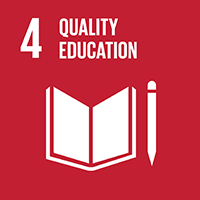Promoting youth employment and resilience in Central America, CaPAZ II
The module aims to strengthen the psychosocial resilience and employability of young people from high-violence neighbourhoods in Guatemala, Honduras, and El Salvador. It enhances access to non-formal education and vocational training for young people with only basic education, offering comprehensive training programmes of up to six months. These include technical training, vocational guidance, psychosocial resilience building, and labour rights awareness. This holistic approach builds on previous experience, studies, and participatory research with 117 young people.
Outcome 1 trains staff from local and national institutions, as well as youth peer educators, to promote psychosocial resilience among young people. The hypothesis is that training will improve the ability of teachers, trainers, and employment service staff to meet the needs of young people in violent contexts, thereby enhancing their employability.
Outcome 2 expands non-formal vocational training in selected neighbourhoods. Short, labour market-oriented courses prepare young people for work by combining vocational skills, psychosocial support, and labour rights education. National and regional certifications improve employment opportunities within the SICA region. The approach assumes that better-trained teachers will increase access to vocational opportunities.
Outcome 3 collaborates with private companies offering green or digital jobs to develop or replicate best practices in youth employment. Engaging directly with young people helps companies reassess recruitment processes and reduce prejudices, boosting employability and resilience. Developing skills in green and digital sectors addresses growing market demands.
Outcome 4 adopts a rights-based approach focusing on youth participation. It raises awareness among young people and institutional staff about labour and participation rights, empowering youth to claim their rights. A youth advisory board is expected to improve the sustainability and impact of the module by embedding youth participation in programme activities.








